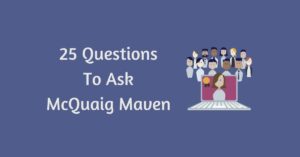Bring depth and strength to your team development strategy with Holst.
“The top three fears holding back corporate innovation were fear of criticism, fear of uncertainty, and fear of negative impact on one’s career, McKinsey research found. Yet nine out of ten companies are doing nothing to relieve these fears.”
McKinsey & Company - Fear factor: Overcoming human barriers to innovation
Humans are herd animals. Our psychological safety, and therefore confidence, grows when our herd provides us with security. This security comes from the strength of the relationships we have at work – the people who have our back when under pressure, commiserate when things don’t go so well and celebrate our successes.
Your teams are the lifeblood of your organisation and the workplace relationships that connect their members are the key to success. Teams work at their best when the individuals within them understand themselves and each other. Great teams are easier to manage and enable your leaders to plan well and make effective decisions. Team development should be at the top of your HR priority list.
As hybrid working continues, it’s harder for newer starters to become established and build relationships with their co-workers. When we all worked in our pre-pandemic office spaces, these relationships grew organically and without conscious effort. Now however, organisations need to intervene to kickstart the relationship building process and invest in their continual development.
Targeted team facilitation is important
Teams, whether on-the-ground or senior leadership level, must be able to work cohesively to avoid internal wrangling or develop a toxic culture.
This is only possible when the individuals develop self and social awareness. They must be able to reflect on their own personality traits and learn how to use their human skill set (emotional intelligence, resilience and motivation) to mitigate their weaknesses and maximise their strengths appropriately. Crucially, they must be aware of their impact on others and understand why their co-workers react the way they do. If someone flies off the handle, or flounces off in a huff, do you need to react in kind? How do you respond to that overreaction in order to move forward? Too many disciplinary actions take place simply due to inadequate emotional regulation.
Bring depth and strength to your team development strategy with Holst
Holst enables organisations to efficiently focus on what creates cohesion: understanding each other and learning how to communicate effectively.
The objectives:
- To engage your teams in meaningful conversations
- To equip your team leaders with insights to better manage their teams
- To enable your senior leaders to cultivate an organisational culture which reflects the values of your people
- Most importantly, to help your people to get along better, work harmoniously and develop a work environment that is a good place to be proud of.






